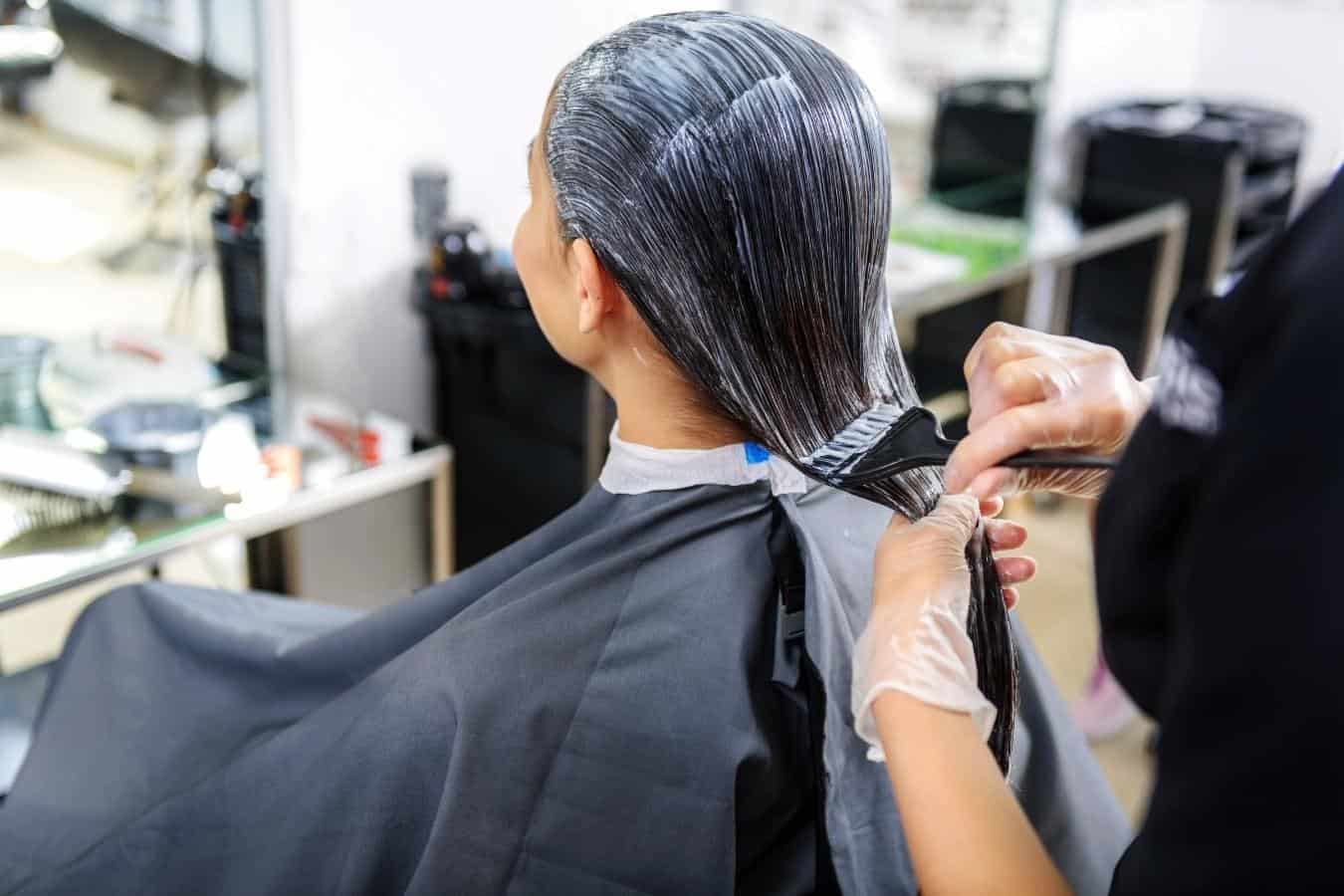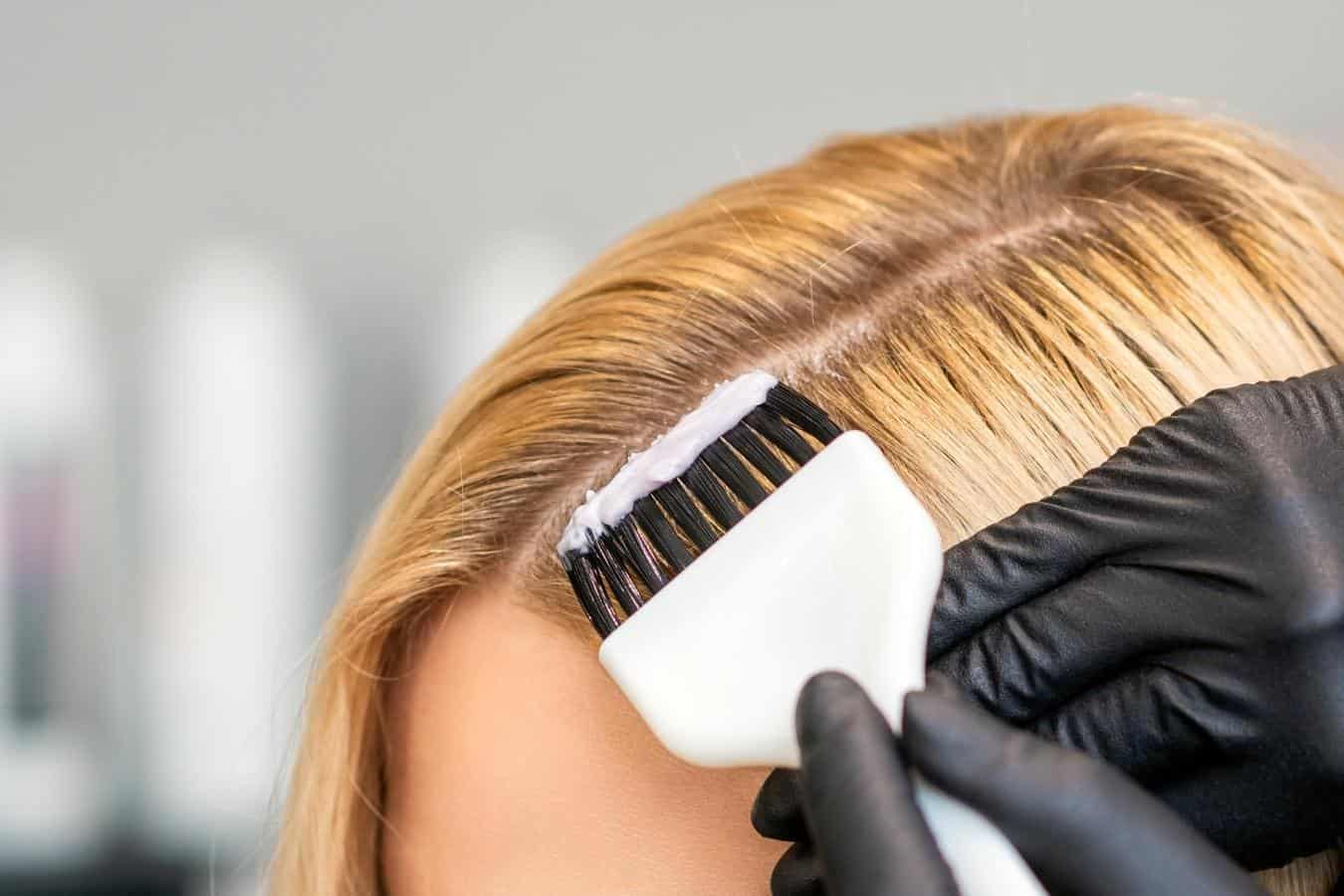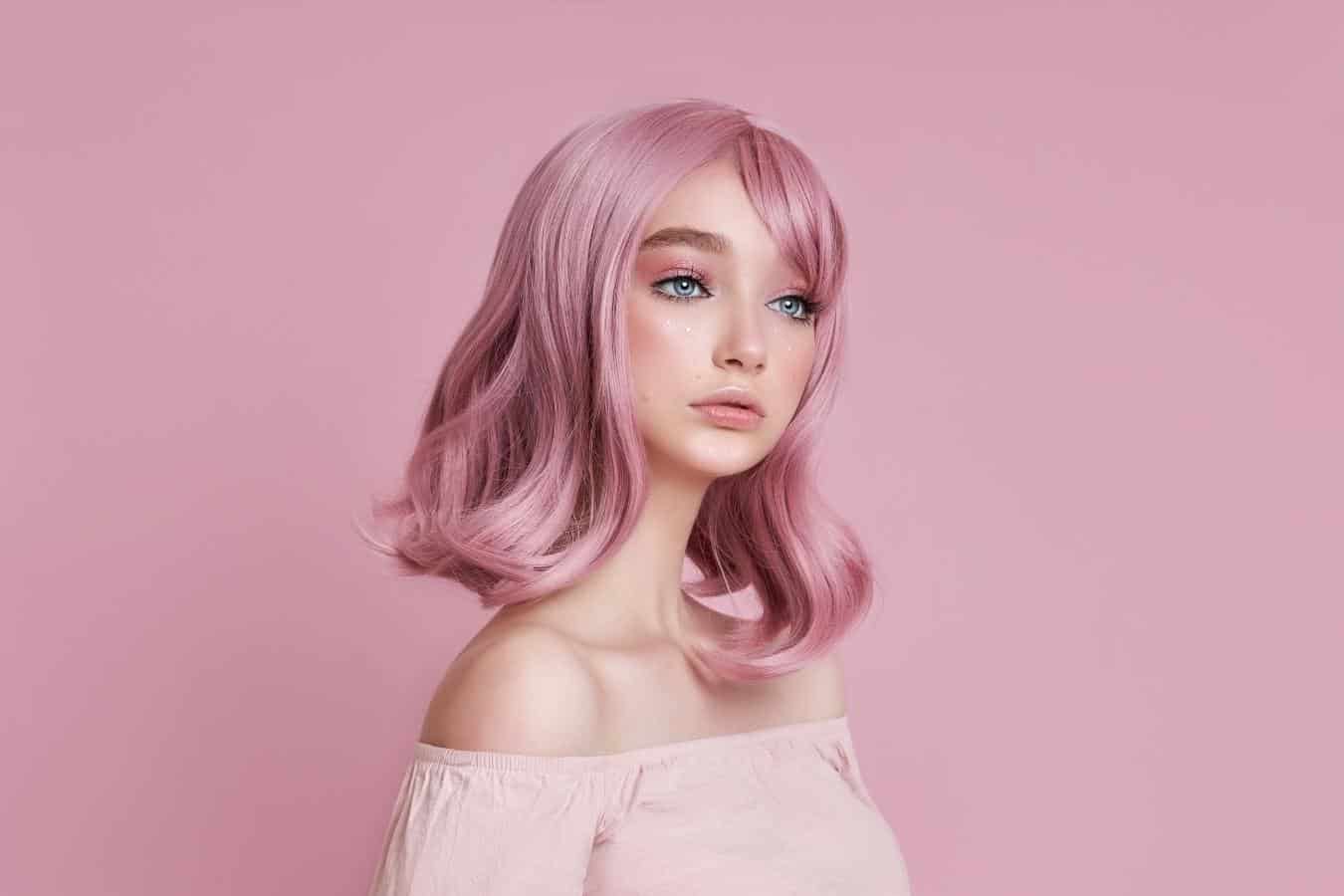Does ammonia change hair color? This is a question often asked when dyeing hair at home. In this article, we will answer this question and explain the pros and cons of using ammonia hair dyes.

Ammonia changes your hair color. It lightens the hair’s color pigment so that hair can be re-colored. It also removes any unwanted pigments and opens the hair strands so that new color can be absorbed.
What Is Ammonia?
Ammonia is a commonly available alkaline chemical that is used to raise the pH level of hair strands during the process of dyeing hair.
Our hair is naturally acidic, so the alkalinity of ammonia counteracts this, causing the hair cuticle to open up
Ammonia is the active ingredient in hair dye that allows drastic color changes to take place.
Do All Hair Dyes Have Ammonia?
These days, not all hair dyes contain ammonia. Ammonia hair dyes tend to be longer-lasting or permanent options of hair dye.
Ammonia-free dyes may be gentler on your hair and scalp, but they will not last as long.
The color only coats the surface of the strands of hair. It does not penetrate the cortex as ammonia does.
Does Ammonia Change Hair Color?

Yes, ammonia changes hair color. As the ammonia causes the pH level to rise, the cuticle layer of the hair is lifted, allowing color to penetrate the hair’s cortex or inner part.
The ammonia then activates the peroxide present in the color developer, helping the desired color develop in the hair.
The higher the absorption of dye into the cortex of your hair, the better the capacity for the color to last in your hair.
Without the chemical ingredient, ammonia, any color change would be very mild, if it even takes place at all.
In fact, without ammonia, it would take multiple applications of a dye to achieve any color effect without ammonia.
This is because the color would only coat the outside of the hair strands and not actually be absorbed into the cortex.
Is Ammonia Bad For You?

Although ammonia can help you achieve the color you are after, it may come at a price:
Frizzy Brittle Hair
Repeated use of hair color containing ammonia can result in damage to the cuticle. This allows moisture to escape.
As the hair loses moisture, the result is dry, frizzy hair that is more susceptible to damage. This can lead to hair fall.
May Trigger Gray Hair
Hair contains tyrosine which is an amino acid that regulates melanin production. Tyrosine gives hair the capacity to hold onto color (natural or synthetic).
As ammonia penetrates the hair cuticle, it breaks down the tyrosine. This can affect the hair’s ability to hold onto any color, leading to gray hair.
May Irritate Skin
When ammonia encounters the skin, it can cause skin burns. It also has the potential to irritate the eyes and nose.
May Enter Bloodstream
When ammonia is applied to the hair during the coloring process, it comes into contact with the scalp.
There is a possibility that the ammonia will enter the bloodstream through the scalp. This can lead to health problems with the lungs and can also cause infections in the eyes and throat.
Should You Switch To Ammonia Free Hair Dye?

So, with the potential side effects of ammonia hair dyes, you may be thinking about switching to ammonia-free hair dye.
There are plenty of products out there that pledge to give you color without the negative effects of ammonia.
Just a note to say- make sure you do a patch test before proceeding with using any color on your hair, ammonia-free or not. Best to err on the side of caution!
Advantages Of Using Ammonia Free Hair Dye
We have put together a few advantages you might enjoy if you opt to switch ammonia-free hair dye.
Gentle On Hair
Hair dye that is ammonia free is gentle on the hair and scalp. If your hair has been subjected to ammonia for a while, it may benefit from a break.
Healthier Hair
Without the harshness of ammonia, your hair quality can improve. You can enjoy shinier, softer hair due to the hair’s ability to retain more moisture.
Gray Coverage
There are ammonia-free dyes that offer 100% gray blending if that’s something you aspire to.
Odorless
You can avoid the pungent odor of ammonia when you use alternative dyes. This can make the whole process of hair dyeing a more enjoyable experience.
Things To Be Aware of When Using Ammonia Free Hair Dye
If you decide to go down the route of ammonia-free hair dye, there are a few things to be aware of:
Semi-Permanent Or Demi-Permanent Ammonia Free Hair Dye
Opting for semi-permanent or demi-permanent ammonia-free dye is often not strong enough to totally change your color.
Many stylists say it may not cover gray hairs 100% either. However, the science behind this is improving all the time.
Permanent Ammonia Free Hair Dye
If you decide to go for a permanent color which is free from ammonia, be aware that there will be something in the formula to open the hair cuticles.
Often this alternative to ammonia is the chemical ethanolamine. Studies have found ethanolamine to be potentially more harmful than ammonia.
In conclusion, ammonia does change the color of your hair by opening the cuticles so that the color can penetrate the cortex.
Frequently Asked Questions (FAQ)
Ammonia-free hair color can be potentially better for your hair as long as it is semi-permanent or demi-permanent. These dyes just coat the hair shaft, so your color won’t last as long.
Yes, you can. But ammonia-free hair dyes that can do this have an alternative chemical. Commonly, ethanolamine is used which can also cause problems.
In some countries, ethanolamine is categorized as a moderate health priority, whereas ammonia is categorized as a low-risk health priority.
Hair dyes containing ethanolamine can cause hair damage and even hair loss. It is not recommended that pregnant women or those planning to get pregnant in the near future use dyes containing this chemical as, in extreme cases, it can cause birth defects.
Disclaimer: This site is not intended to provide professional or medical advice. All of the content on LovedByCurls.com is for informational purposes only. All advice should be followed at your own discretion. Ingredients may change at any time so always check the product label before using. Check our full disclaimer policy here.
